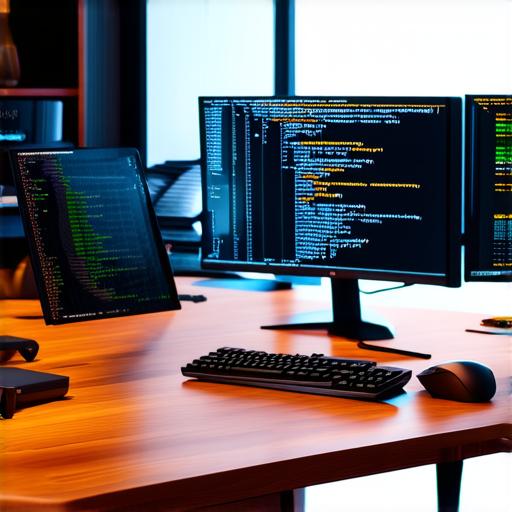What is Programming?
Programming refers to the process of creating instructions that a computer can understand and execute. It involves using a specific language, such as Python, Java, or JavaScript, to write code that tells the computer what to do. Programming allows us to automate tasks, create games and applications, and even manipulate data.
Why Learn Programming?
Learning programming can be incredibly beneficial for software developers, as it allows them to have a better understanding of how computers work and how they can use that knowledge to create more efficient and effective programs. Additionally, programming skills are highly sought after by employers in a variety of industries, making learning to program an excellent way to increase your job opportunities.
How to Choose the Right Programming Language
There are many programming languages available, each with its own unique features and capabilities. When choosing a programming language, it’s important to consider what you want to accomplish with your code. For example, if you’re looking to create a web application, JavaScript or Python might be a good choice, while Java is commonly used for building enterprise applications.
Understanding Data Types and Variables
Data types are an essential concept in programming, as they define the type of data that can be stored in a variable. For example, if you want to store a number, you would use an integer or floating-point variable. If you wanted to store a string, you would use a character variable.
Variables are used to store values in a program, and they can be assigned different values at any time. For example, you might have a variable that stores the user’s name, and then assign a new value to that variable when the user logs into your application.
Control Flow Structures
Control flow structures allow you to control the flow of your program, determining which code blocks should be executed and when. There are several types of control flow structures in programming, including:
- If-else statements: These are used to execute different code blocks based on a condition. For example, if it’s raining outside, the program might print “It’s raining outside” and then skip to the next block of code.
- Loops: Loops allow you to repeat a specific set of instructions multiple times. There are several types of loops in programming, including for loops, while loops, and do-while loops.
- Switch statements: These are used to execute different code blocks based on the value of a variable.
Using Functions
Functions are an important concept in programming, as they allow you to break down complex tasks into smaller, more manageable parts. Functions can be defined within a program and then called from other parts of the program to perform specific tasks.
There are many benefits to using functions in programming, including improved code readability and maintainability. By breaking down complex tasks into smaller functions, you can more easily understand how the program works and make changes as needed.
Debugging and Troubleshooting
Debugging is an essential part of programming, as it involves identifying and fixing errors in your code. There are many tools available to help with debugging, including integrated development environments (IDEs) and debuggers.
When debugging your code, it’s important to use descriptive variable names and commenting to help you understand what’s happening in the program. Additionally, using print statements can be a helpful way to see the values of variables and trace the flow of your code.
Case Studies
One of the best ways to learn how to perform elementary programming is by looking at real-world examples. Here are a few case studies that illustrate how programming skills can be applied in different industries:
- Web Development: A web developer might use JavaScript to create interactive elements on a website, such as a chatbot or a form that sends data to a server. They might also use HTML and CSS to design the layout of the website and make it visually appealing.
- Data Analysis: A data analyst might use Python to clean and analyze large datasets, performing statistical analysis and visualizing the results using libraries like Matplotlib or Seaborn.
- Game Development: A game developer might use Java or C++ to create a game that runs on a computer or mobile device, using graphics and sound libraries to enhance the user experience.

Summary
Learning to program can be an incredibly rewarding experience, both personally and professionally. By understanding the basics of programming, you’ll be able to write efficient and effective code that can help you automate tasks, create games and applications, and even manipulate data. With practice and dedication, you’ll soon be on your way to becoming a skilled software developer.
FAQs
Here are some frequently asked questions about programming:
- What are some good resources for learning to program? There are many online resources available, including tutorials, video courses, and forums where you can ask questions and receive feedback from other programmers.
- Can I learn to program if I have no prior experience? Yes, anyone can learn to program with the right resources and dedication. It’s important to start with the basics and gradually work your way up to more complex tasks.
- What are some common mistakes that beginners make when learning to program? Some common mistakes include using the wrong data types, forgetting to include necessary code blocks, and not properly debugging their code. By being mindful of these mistakes and practicing regularly, you can overcome them and become a better programmer.
